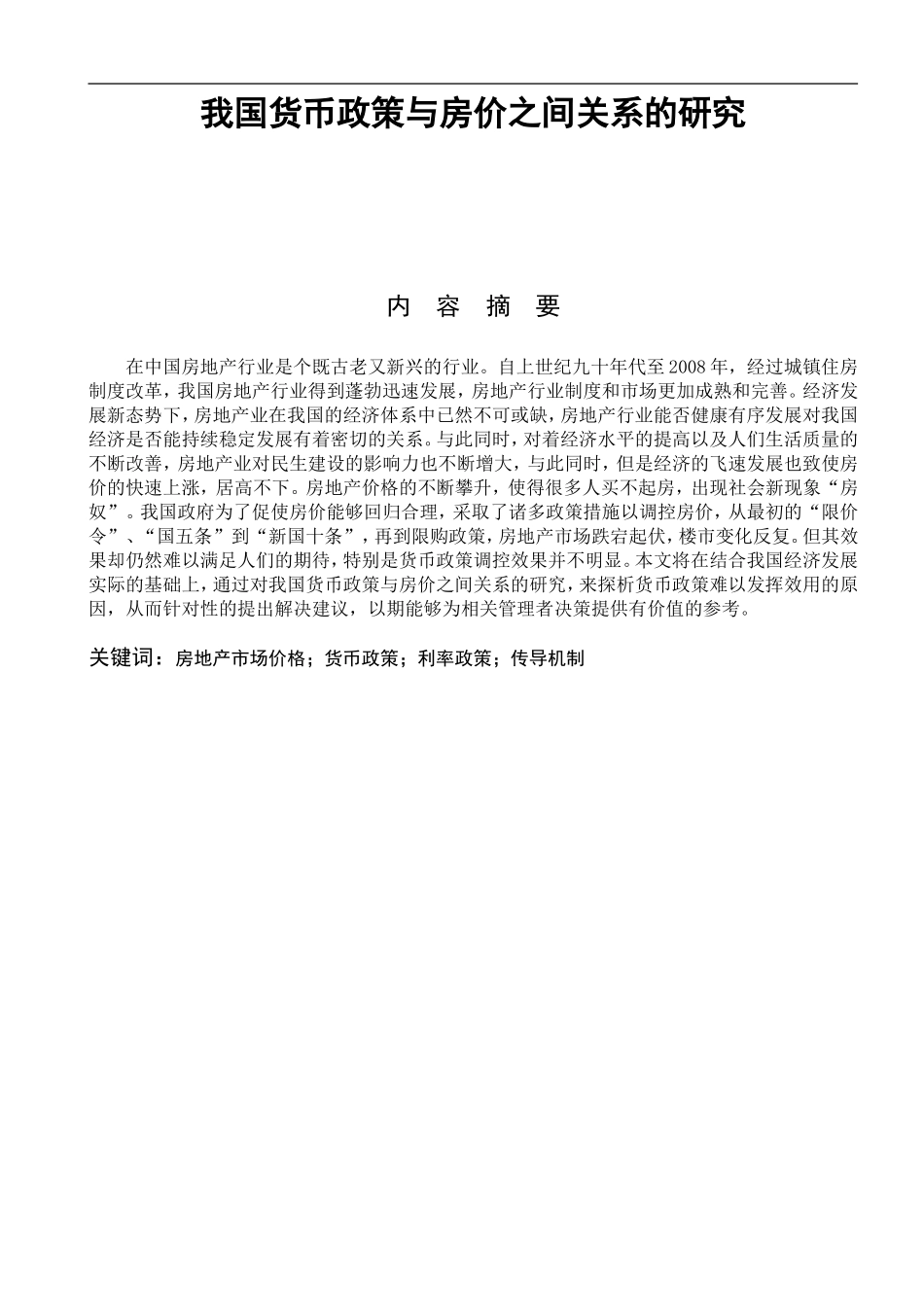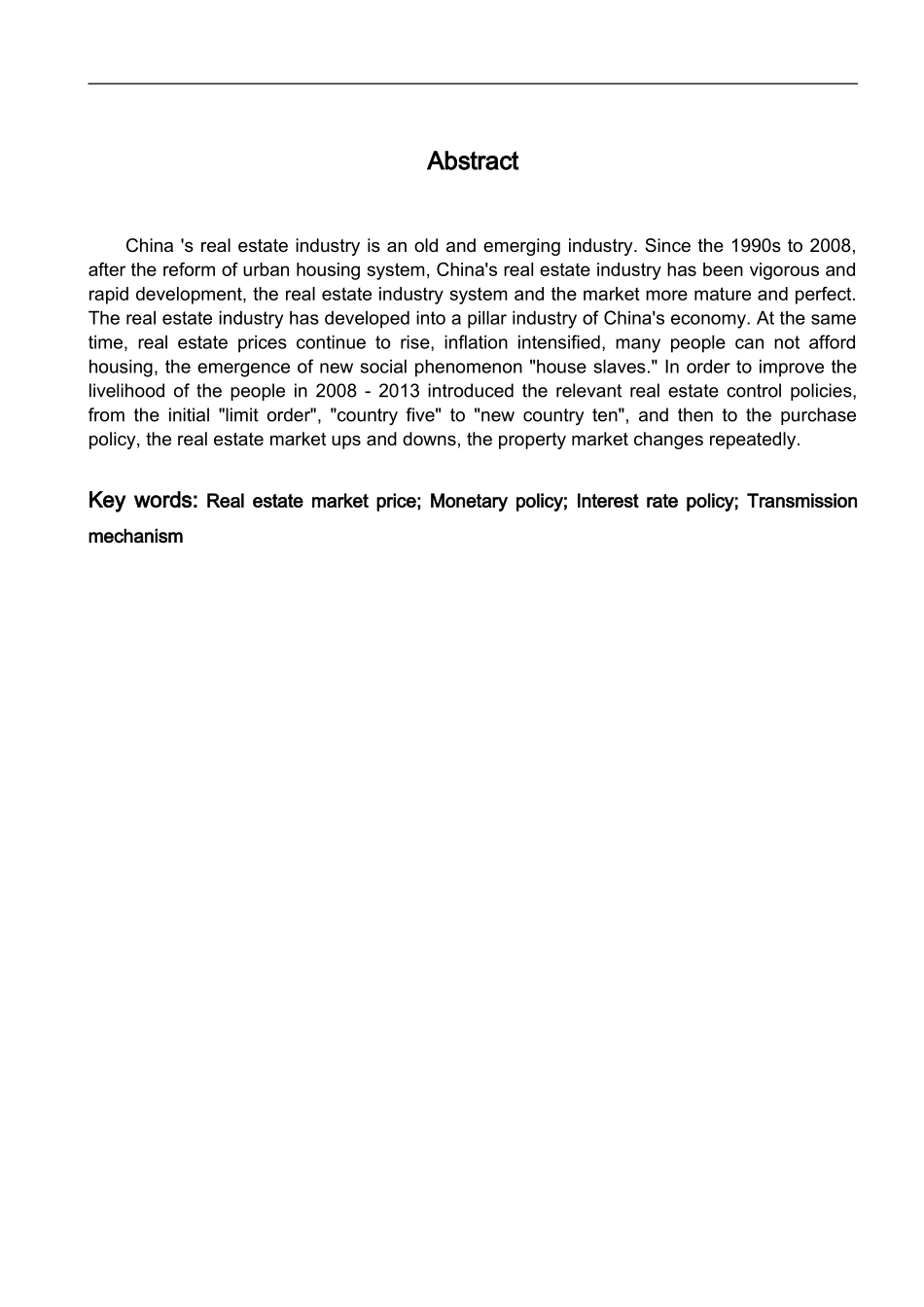我国货币政策与房价之间关系的研究内 容 摘 要在中国房地产行业是个既古老又新兴的行业。自上世纪九十年代至 2008 年,经过城镇住房制度改革,我国房地产行业得到蓬勃迅速发展,房地产行业制度和市场更加成熟和完善。经济发展新态势下,房地产业在我国的经济体系中已然不可或缺,房地产行业能否健康有序发展对我国经济是否能持续稳定发展有着密切的关系。与此同时,对着经济水平的提高以及人们生活质量的不断改善,房地产业对民生建设的影响力也不断增大,与此同时,但是经济的飞速发展也致使房价的快速上涨,居高不下。房地产价格的不断攀升,使得很多人买不起房,出现社会新现象“房奴”。我国政府为了促使房价能够回归合理,采取了诸多政策措施以调控房价,从最初的“限价令”、“国五条”到“新国十条”,再到限购政策,房地产市场跌宕起伏,楼市变化反复。但其效果却仍然难以满足人们的期待,特别是货币政策调控效果并不明显。本文将在结合我国经济发展实际的基础上,通过对我国货币政策与房价之间关系的研究,来探析货币政策难以发挥效用的原因,从而针对性的提出解决建议,以期能够为相关管理者决策提供有价值的参考。关键词:房地产市场价格;货币政策;利率政策;传导机制AbstractChina 's real estate industry is an old and emerging industry. Since the 1990s to 2008, after the reform of urban housing system, China's real estate industry has been vigorous and rapid development, the real estate industry system and the market more mature and perfect. The real estate industry has developed into a pillar industry of China's economy. At the same time, real estate prices continue to rise, inflation intensified, many people can not afford housing, the emergence of new social phenomenon "house slaves." In order to improve the livelihood of the people in 2008 - 2013 introduced the relevant real estate control policies, from the initial "limit order", "country five" to "new country ten", and then to the purchase policy, the real estate market ups and downs, the property market changes repeatedly.Key words: Real estate ...


